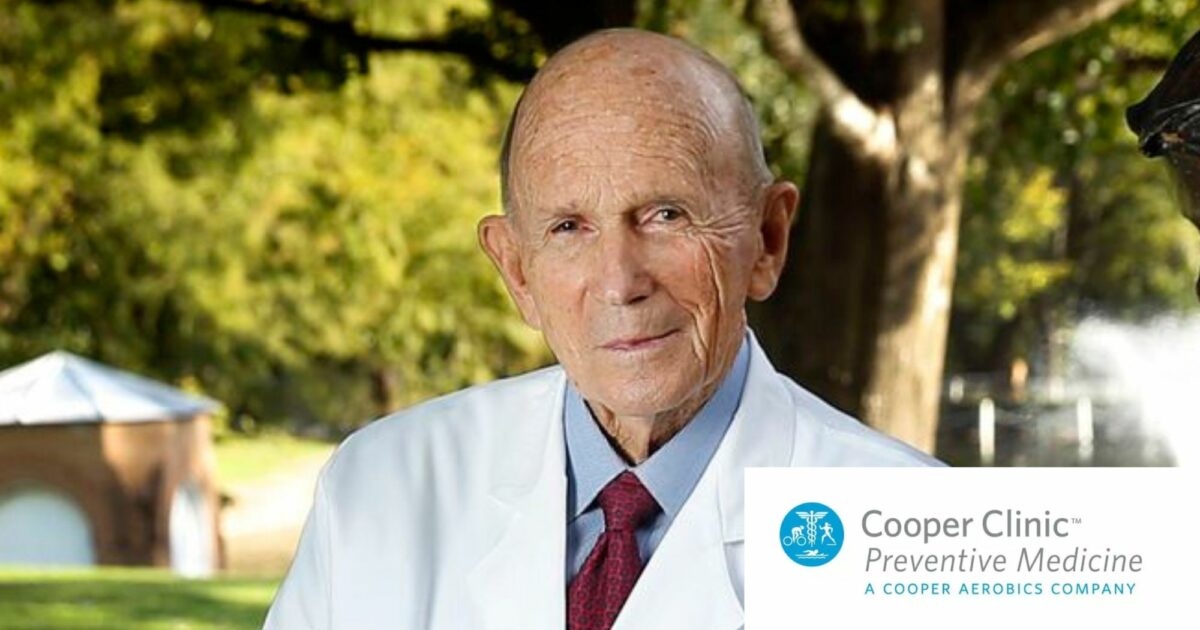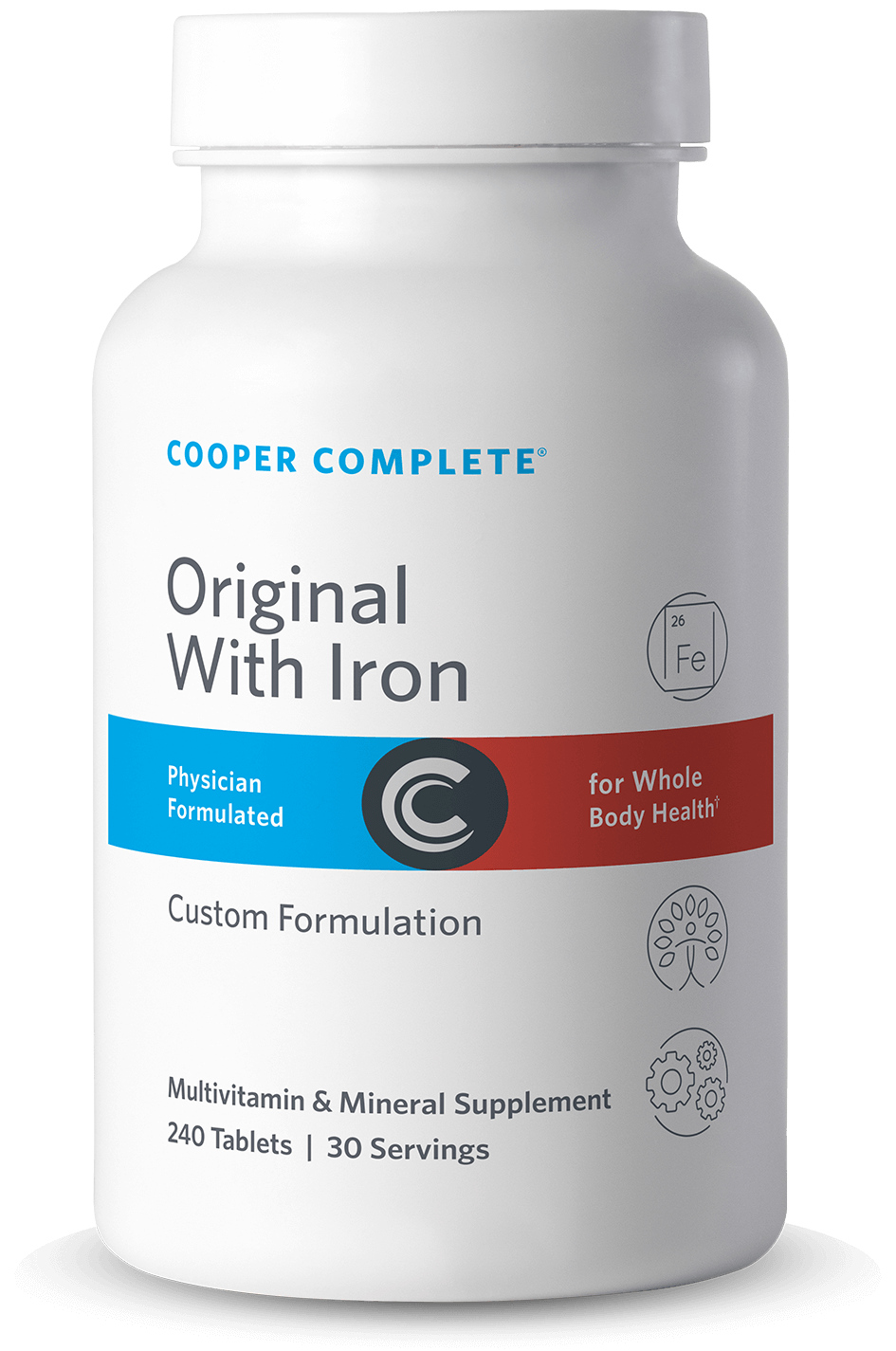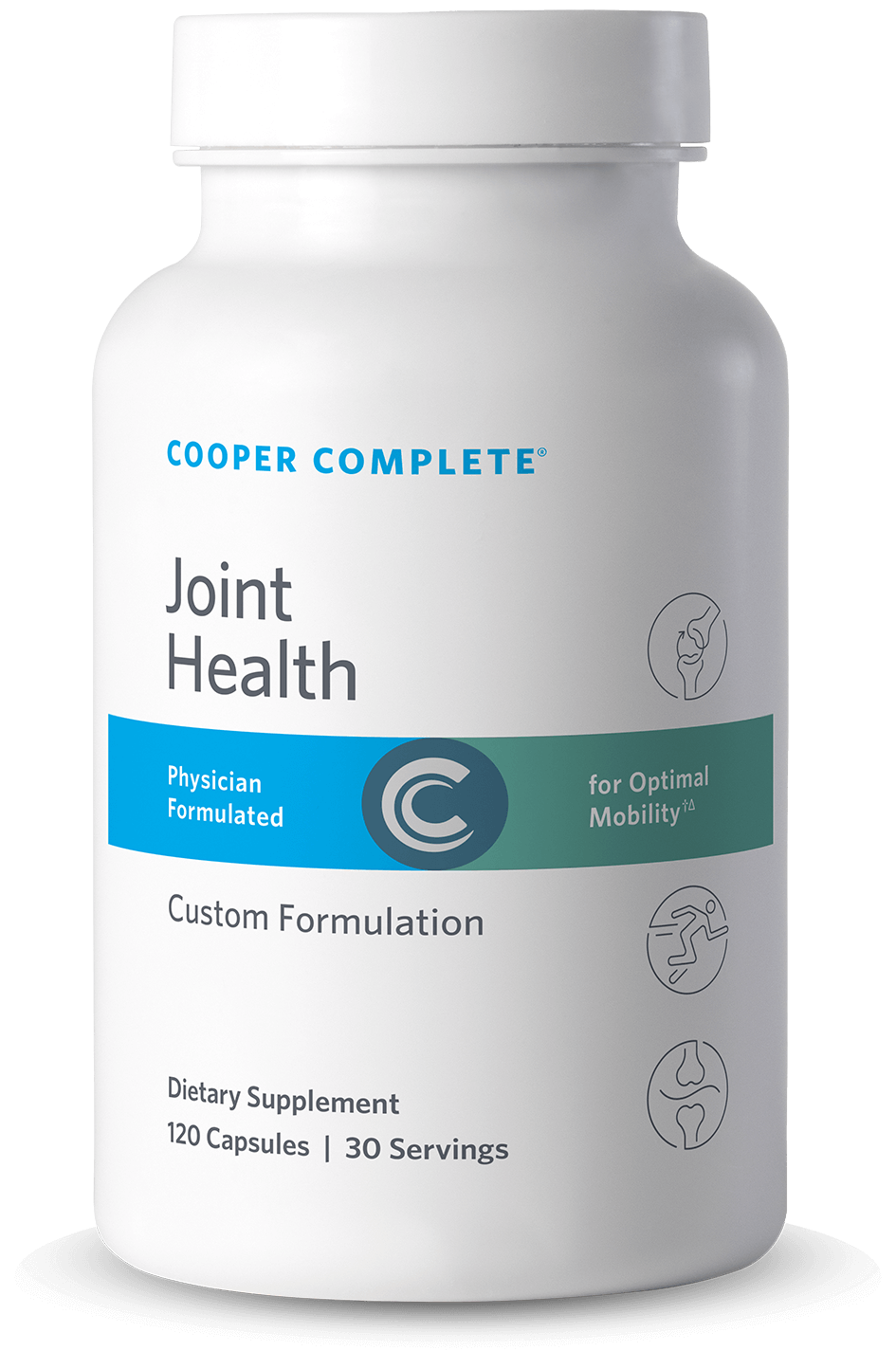Dr. Kenneth Cooper Supplement Recommendations

Cooper Aerobics Founder and Chairman Kenneth H. Cooper, MD, MPH, starts his daily routine at 7 a.m. He sees patients at Cooper Clinic, attends various meetings, gives lectures and presentations and ends every day with a 5:30 p.m. workout.
Dr. Cooper credits his exercise routine and healthy diet for his health and longevity. Yet, even sometimes, the Father of Aerobics can come up short. That’s why he follows a strict daily supplement regimen. Here, Dr. Kenneth Cooper reveals which supplements he relies on to stay healthy, and provides his general supplement recommendations.
Q: Did you grow up taking vitamins?
A: I took a daily multivitamin called the Alphabet Tablet from about age 12 until I went to medical school. My father was a periodontist and became convinced of the benefits of nutrition and supplementation on gum health and disease. He found that patients with pyorrhea and gingivitis who ate a diet low in sugar and high in vegetables and took a multivitamin had much better gum health than those who didn’t.

Original Comprehensive Multivitamin With Iron
Experience the difference - top-rated physician-formulated and recommended multivitamin and mineral supplement is packed with 25 key vitamins and minerals including Ferronyl® Iron, Zinc, Magnesium, Potassium, Biotin, Selenium, Copper, Vitamins A, C, D, E, K, and activated B vitamins.† DUE to LOW INVENTORY THIS ITEM IS LIMITED TO ONE BOTTLE
$54.98 Add to cartIn medical school, I was taught vitamins were a waste of time. They only made the pharmacist rich and the toilet water expensive. Undeniably, I confess I critiqued my father in the early days and stopped taking vitamins.
When I transferred from the Army to the Air Force, I started working with the astronaut program. I began researching vitamins, particularly vitamin C, for immunity and iron.
I spent time trying to quantify the impact of vitamins. Then, after the first Cooper Complete study was published in the Journal of the American College of Nutrition, showing a reduction of LDL (bad) cholesterol, homocysteine, and C-reactive protein, I started taking multivitamins.
Q: Is there a particular multivitamin supplement you take?
A: I take Cooper Complete Original With Iron, four tablets in the morning with breakfast and four tablets in the evening with dinner. I like taking the eight-tablet-a-day formula, which contains 100 mg of coenzyme Q10.
Q: Which multivitamin supplement do you recommend to your patients?
A: I recommend a minimum of Cooper Complete Basic One multivitamin and mineral formulation for my patients. For patients with cardiac disease, I also put them on a minimum of 100 mg of coenzyme Q10.
Q: What about vitamin D supplements?
A: I get 50 mcg (2000 IU) of vitamin D in the Cooper Complete Original With Iron multivitamin plus an additional 125 mcg (5000 IU) from Cooper Complete Vitamin D3. That has elevated my vitamin D blood level to 57 ng/mL, which is the desired level if you want to protect yourself from developing Alzheimer’s and dementia. Research shows adequate vitamin D levels may even reduce the severity of COVID-19 infection. While my wife and I have had COVID-19, neither had any significant symptoms. So while I can’t guarantee you will not come down with a COVID infection, if you are fully immunized and have a healthy vitamin D level, there is very little likelihood that you will ever be hospitalized, much less die!
Q: Do you take omega-3 fatty acids?
A: Yes, I take 2 grams twice a day−two of our Advanced Omega-3 softgels at breakfast and two at dinner (which provides 1440 mg EPA and 960 mg DHA). This keeps my omega-3 level around 10 or 11 percent. I also eat a lot of seafood, at least two servings per week-preferably salmon.
I also take 2 grams of omega-3 because of the analgesic and anti-inflammatory properties. After fracturing my leg in 2004 while snow skiing, I find I have leg pain if I don’t take this level of omega 3.
At Cooper Clinic, we run the HS-Omega-3 Index® test, which measures the amount of omega-3 fatty acids (EPA and DHA) in the blood. The average omega-3 index in the United States is 4-5 percent. At Cooper Clinic, we aim for the patient to score at least 8 percent.

Joint Health Supplement
Custom Formulated Nutritional Supplement with Glucosamine Sulfate (2KCI), Chondroitin Sulfate, and Bromelain.
$39.98 Add to cartQ: You mentioned inflammation and joint pain. Do you also take Cooper Complete Joint Health?
A: Yes, I’ve been taking Cooper Complete Joint Health supplement, with glucosamine and chondroitin, for many years. In the four decades that I ran, I covered 37,000 miles. While I quit running in 2004 after breaking the tibial plateau of my right knee while skiing, I continue to walk, and I estimate I’ve now traveled 49,000 miles. This joint supplement helps keep me pain-free.
Q: Many adults have issues with insomnia. What do you suggest for these patients?
A: Sleep is a significant problem for many adults, and adequate sleep is imperative for brain health. Both too little and too much sleep is dangerous to our health. For this reason, I recommend a minimum of 7 hours of sleep per night and not more than 10 hours per night. Too much sleep can lead to cardiovascular problems from extended inactivity.
I confess I’m a bit of a night owl, and I often find a short nap in the afternoon is very beneficial. President John F. Kennedy took a 45-minute nap after lunch, and I remember my dad always broke away at lunchtime and took a 30-minute nap.
While I don’t take melatonin, I find about 50 percent of patients who take melatonin find it helps them sleep. The recommended dose is 3-6 mg of melatonin daily.
[Nina B. Radford, MD, Cooper Clinic Cardiologist and Director of Clinical Research, shares sleep hygiene recommendations for healthier sleep.]
Q: How do you remember to take your supplements?
A: It’s just a habit. We keep them in the kitchen. I’ve found that if I miss a few days, my knee starts hurting, so that’s a good motivation for me to remember.
I do feel my combination of regular physical activity, vitamin supplementation, diet and weight, which is the same as it was in high school, is the reason I’m in good health and enjoying a good life at 92 years of age.
Q: Do you take any non-Cooper vitamins or supplements?
A: I add one tablespoon of Benecol® margarine to my oatmeal every morning. One tablespoon with oatmeal helps keep my cholesterol under control. (Note: One tablespoon of Benecol® Spread contains 0.5 grams of plant stanols, an ingredient derived from natural plant sources, proven to reduce cholesterol levels).
As a reminder, Dr. Kenneth Cooper’s supplement recommendations are not a replacement for talking with your physician. Your physician understands your health profile best, so it’s important to talk to him or her about which supplements are best for you.
